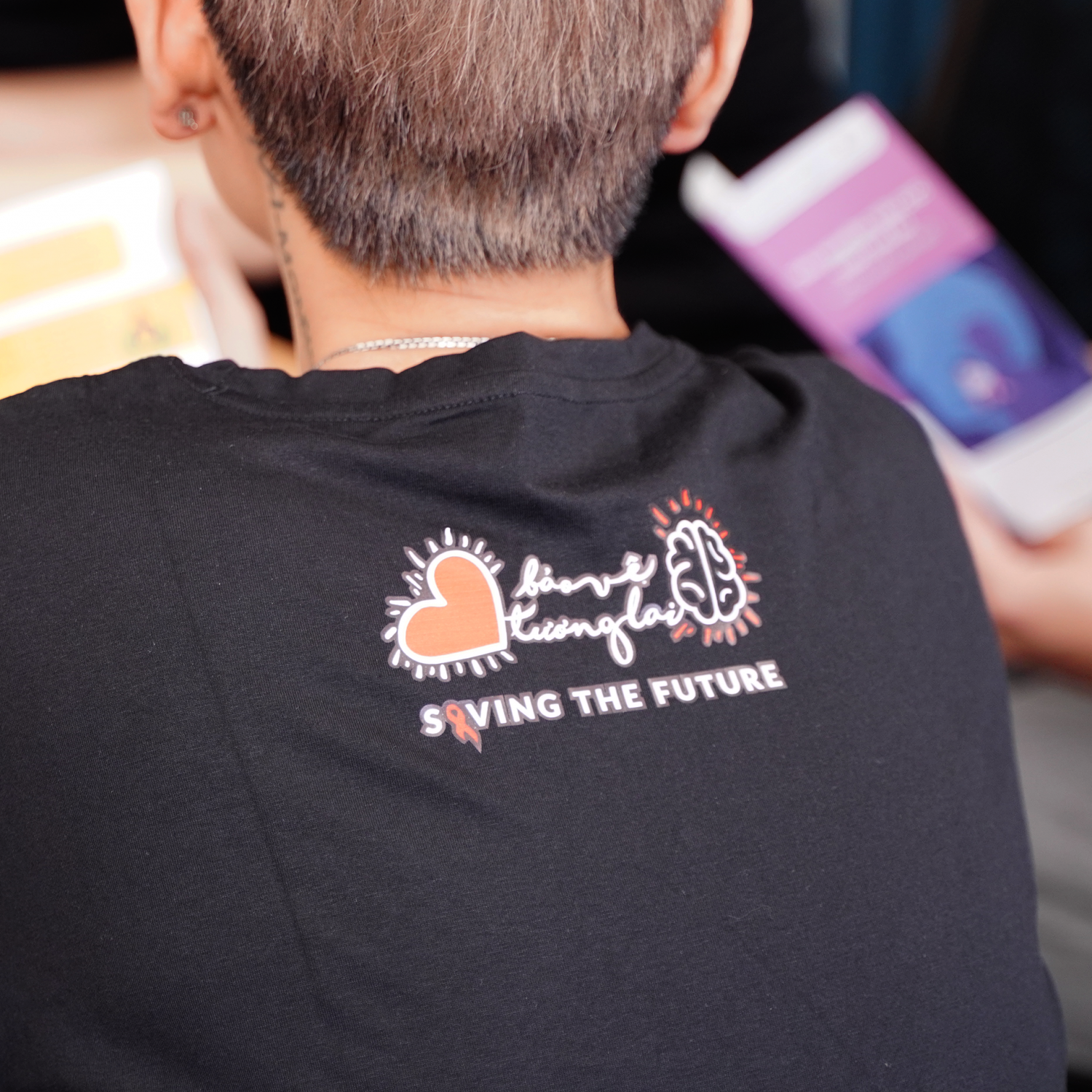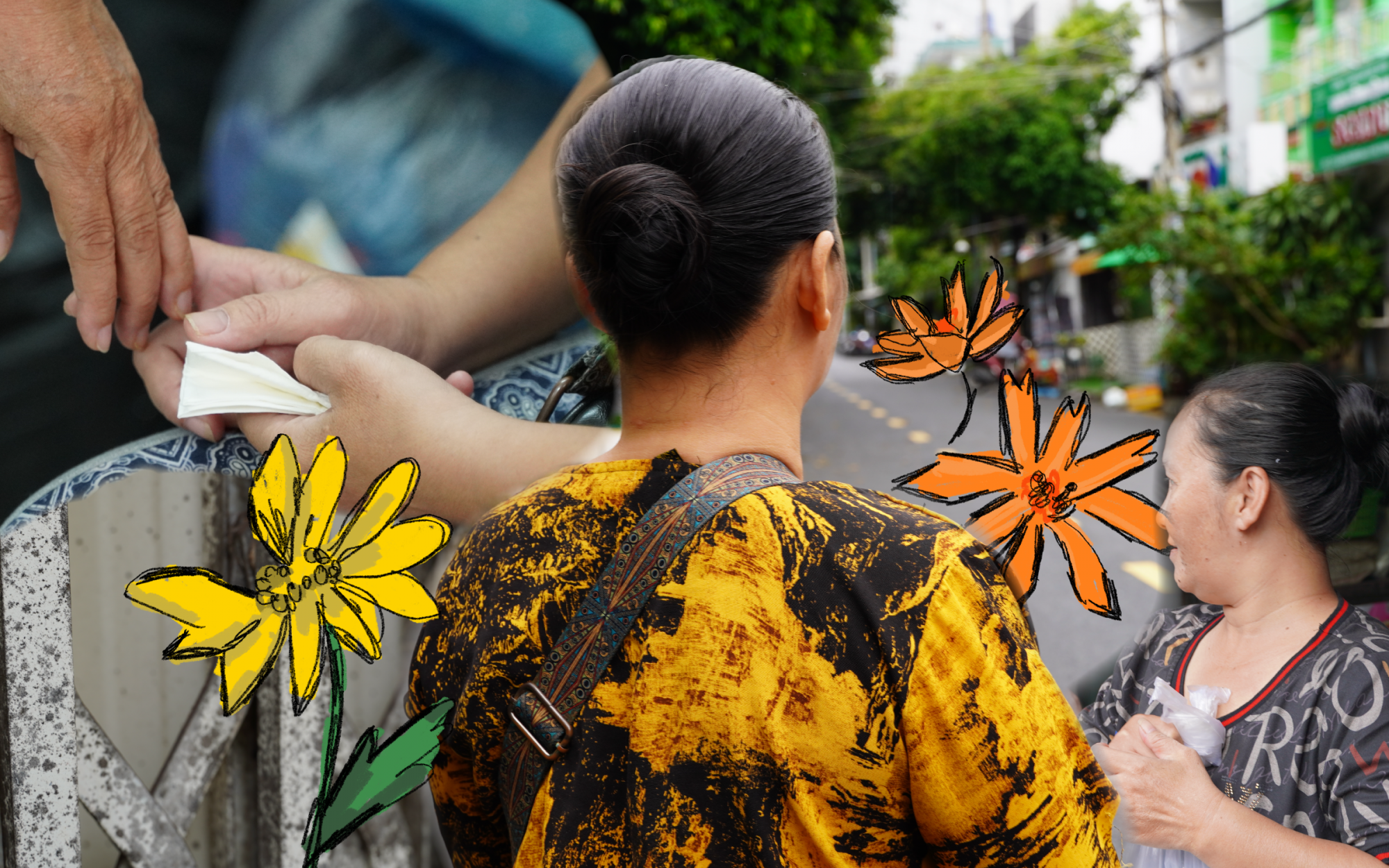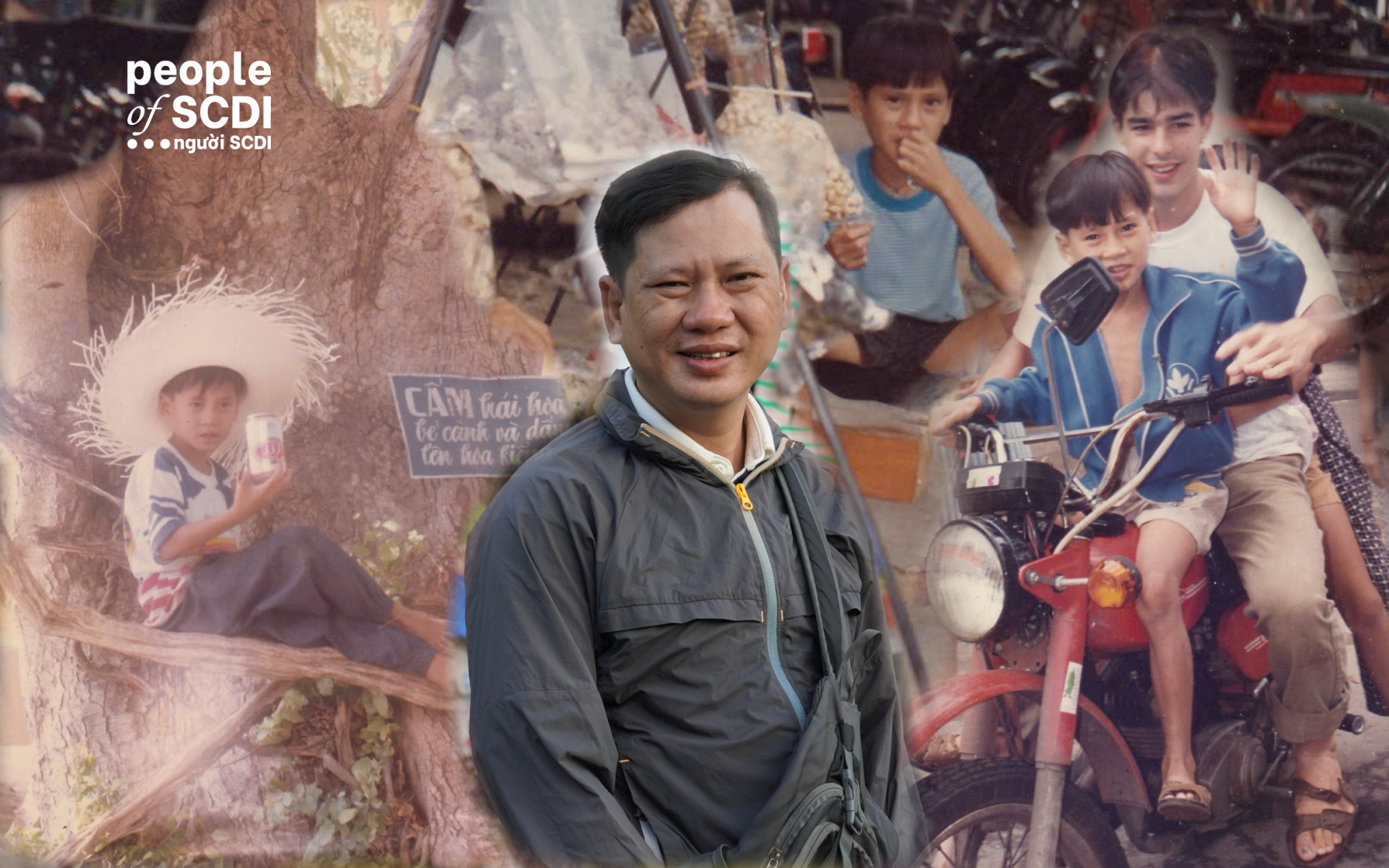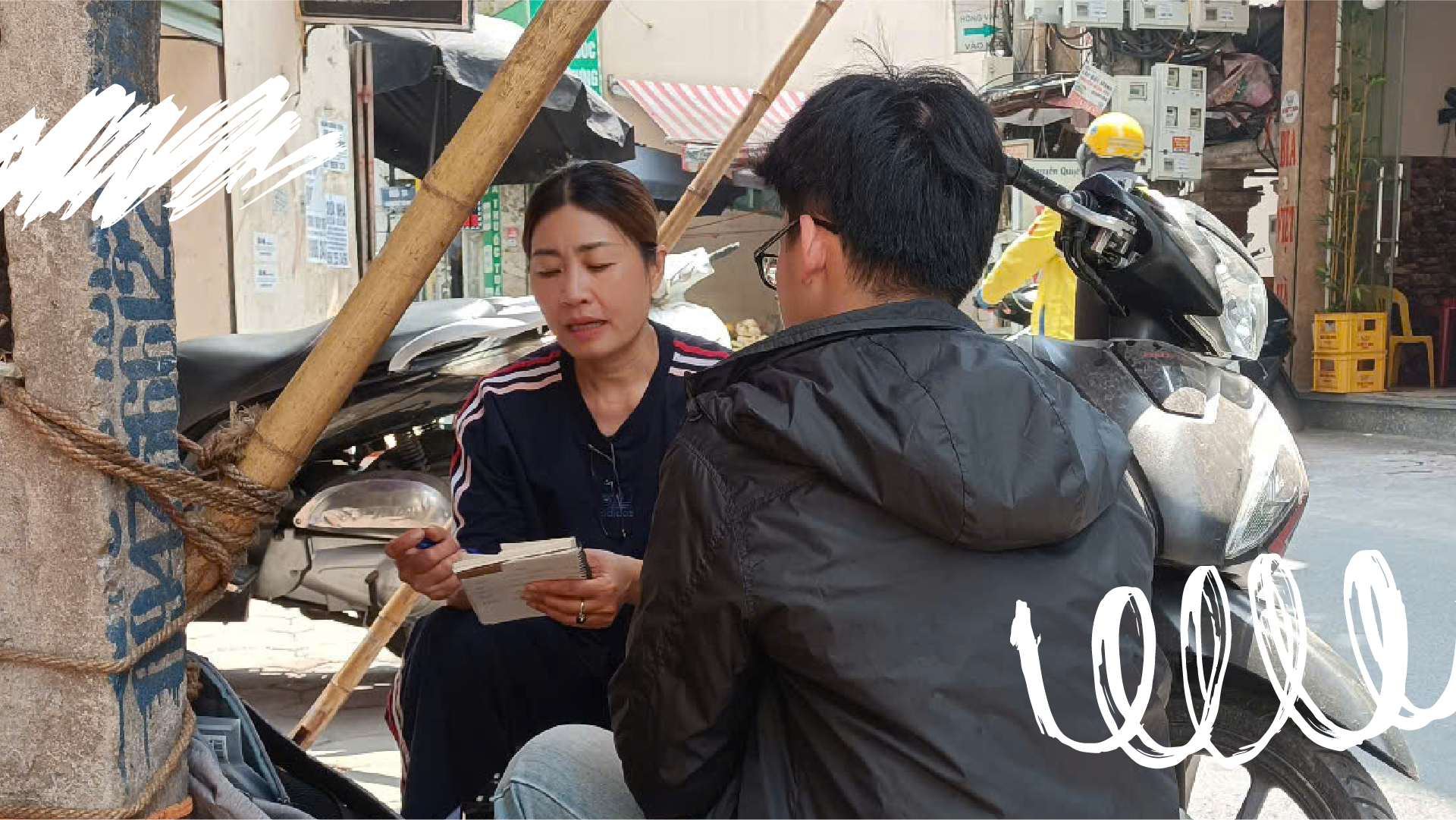The ones who Saving the Future
Saving the Future is a project that intervenes in controlling HIV transmission among the group of adolescents using drugs for the first time in Vietnam. It is implemented with the active participation and coordination of activities from Community-Based Organizations (CBOs). To achieve the goal of enhancing the quality of HIV prevention in drug users aged 16-24 through comprehensive intervention packages, members of community groups are the backbone in approaching and implementing project activities.
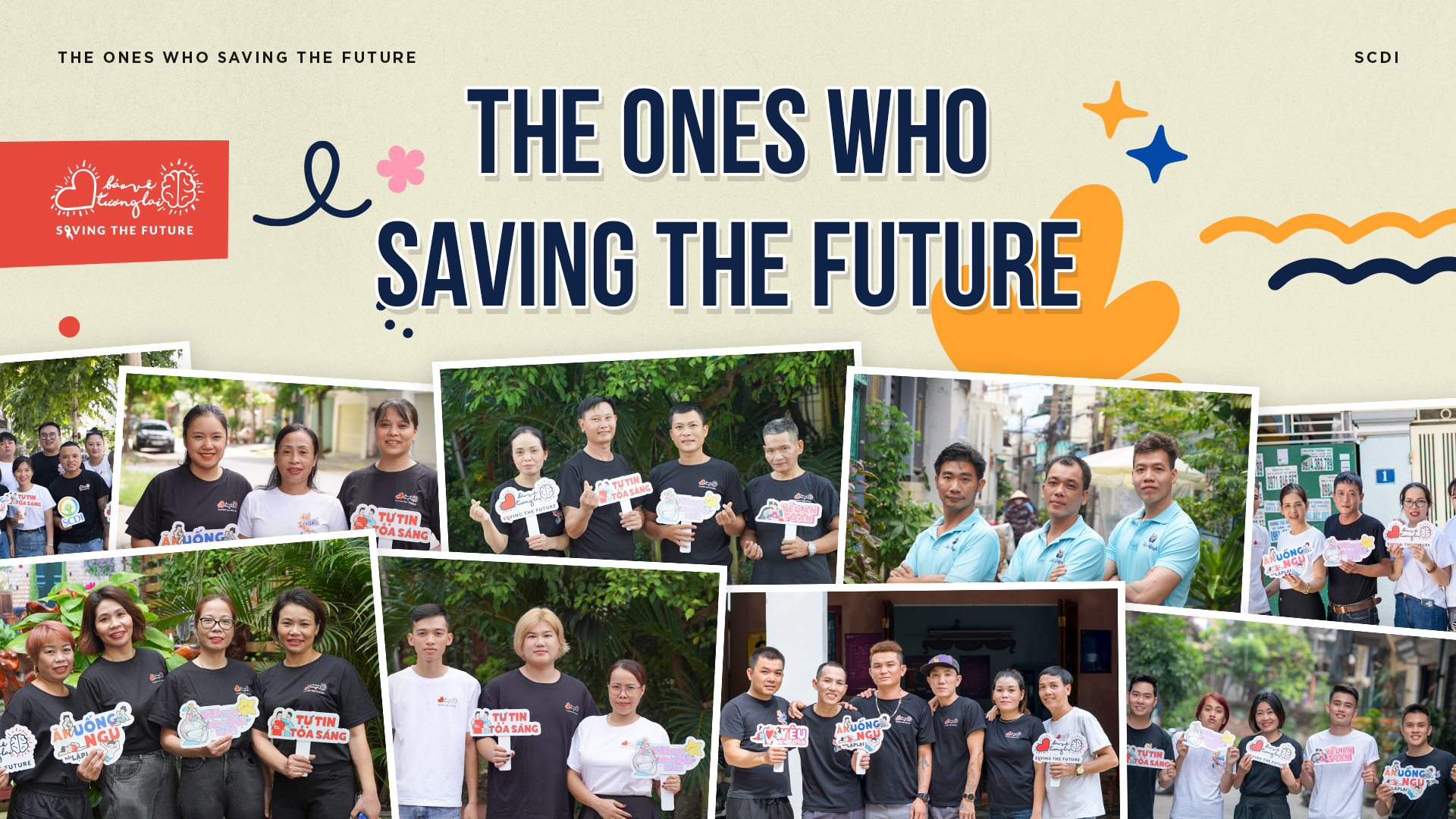
Experience in Community Support as a Solid Foundation
Saving the Future 2.0 extends from 2020 to 2023 with the participation of over 100 outreach workers. The majority of members in these groups have years of experience supporting drug users, those infected or affected by HIV. Most of the outreach workers are "insiders," so they empathize, understand the difficulties, and have the ability to effectively support their community.
However, even these experienced outreach workers face challenges when confronted with a "difficult" task: supporting the control of HIV transmission among the group of adolescents using drugs. "Before the Future Protection project, our group members were accustomed to working with older drug users or those using traditional drugs. They had no experience supporting young people or understanding the types of substances they use, such as pills, ecstasy, syringes, marijuana, etc."
The outreach workers also express concern about the increasingly youthful HIV/AIDS epidemic: "Currently, new types of drugs are emerging, and I worry about the future of the younger generation. They may become dependent on substances, contract HIV, and face many long-term consequences."
However, even these experienced outreach workers face challenges when confronted with a "difficult" task: supporting the control of HIV transmission among the group of adolescents using drugs. "Before the Future Protection project, our group members were accustomed to working with older drug users or those using traditional drugs. They had no experience supporting young people or understanding the types of substances they use, such as pills, ecstasy, syringes, marijuana, etc."
The outreach workers also express concern about the increasingly youthful HIV/AIDS epidemic: "Currently, new types of drugs are emerging, and I worry about the future of the younger generation. They may become dependent on substances, contract HIV, and face many long-term consequences."
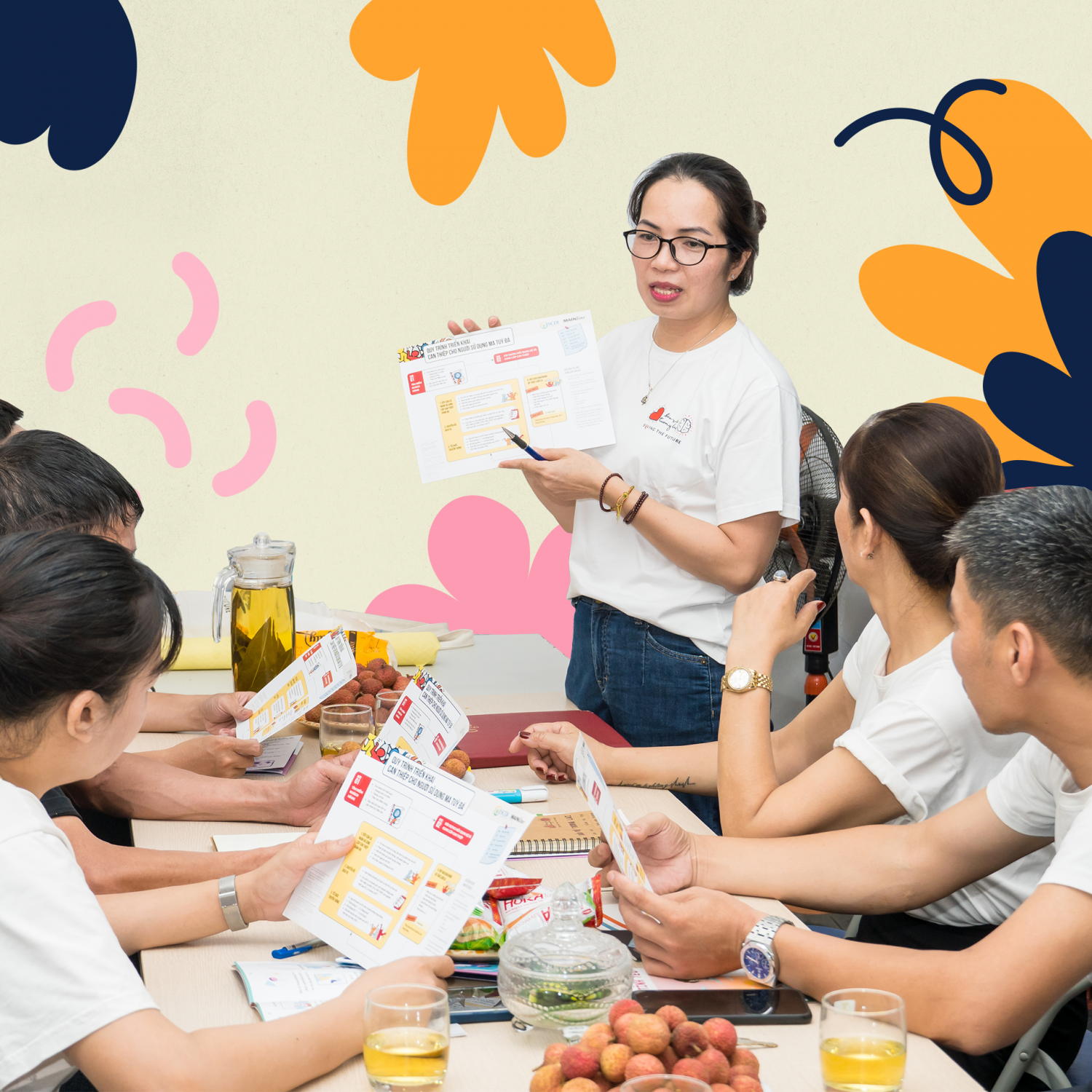
" I hope they can study, enjoy their youth, and have a bright future like their peers, rather than enduring hardships like our generation did in the past.”
In the initial stages of joining the project, community group members need to invest a considerable amount of time to thoroughly understand how to approach and work with individuals aged 16-24. They equip themselves with knowledge about the types of drugs commonly used by young people, understanding how these substances affect health and lifestyle, and identifying differences in behavior compared to older age groups. The first steps are always challenging and unfamiliar, but it is the existing experience and the desire to support the community that have made members of the Community-Based Organizations (CBOs) the reliable force in implementing project activities.
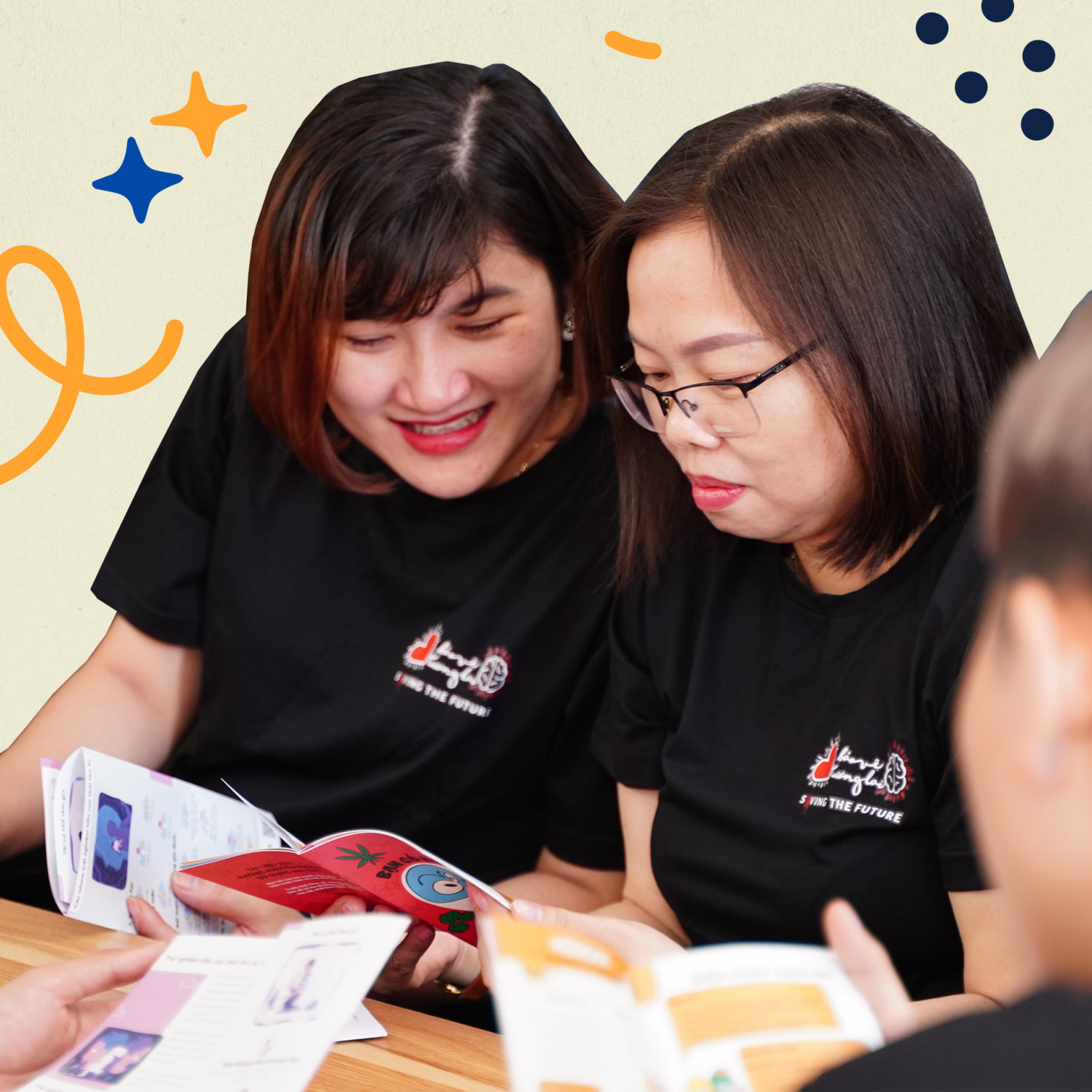
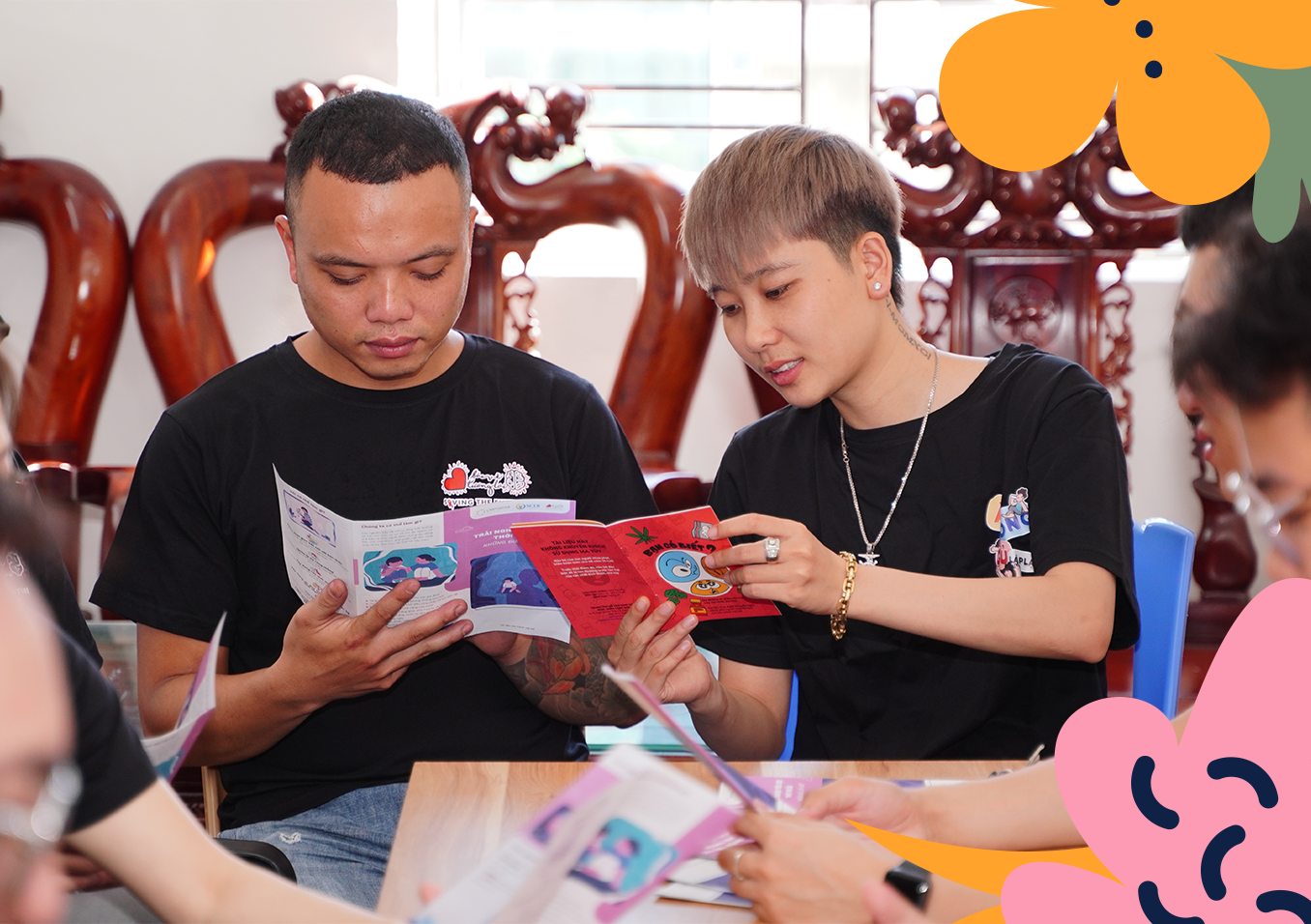
In addition to older members, the group also includes younger members. This is how the project recognizes the potential to enhance effectiveness in reaching out to the adolescent group. Simultaneously, it supports not only those who have previous experience in developing capabilities but also involves young individuals in contributing to their community.
Understanding, empathy, and non-judgment are the keys
When asked about supporting adolescents, outreach workers acknowledge that it is a much more challenging and time-consuming journey compared to assisting older drug users or individuals with HIV.
"At the age of 16-24, they don't want to expose their situation; they just want to hide due to various fears: fear of family, fear of being expelled from school, fear of negative reactions from people around them, etc. The majority of people around them react very negatively to drug use, lacking the calmness and concern to understand the reasons behind it or how to help them. Without understanding and empathy, they will hide, and timely support may not be received."
A distinctive feature of the Protecting the Future project is the personalized design of intervention activities for each client. Therefore, outreach workers need to thoroughly understand the issues and challenges that each individual faces to provide appropriate support. To gain the trust of clients, it is essential for outreach workers to demonstrate sincerity, empathy, and non-judgment.
"At the age of 16-24, they don't want to expose their situation; they just want to hide due to various fears: fear of family, fear of being expelled from school, fear of negative reactions from people around them, etc. The majority of people around them react very negatively to drug use, lacking the calmness and concern to understand the reasons behind it or how to help them. Without understanding and empathy, they will hide, and timely support may not be received."
A distinctive feature of the Protecting the Future project is the personalized design of intervention activities for each client. Therefore, outreach workers need to thoroughly understand the issues and challenges that each individual faces to provide appropriate support. To gain the trust of clients, it is essential for outreach workers to demonstrate sincerity, empathy, and non-judgment.
Furthermore, information security is always a top priority.
"Information security is like a culture of the project. When clients come here, whether we know them beforehand or are acquainted, they only share when they feel safe. Only when the conversation becomes sincere and comfortable can the support be effective.
.png)
Khanh, an outreach worker from the The Times group in Hanoi, shares, 'There are many reasons leading to the drug use among adolescents. Most of the clients coming to our group are students who still attend school and receive financial support from their parents, providing them with the economic means to use substances. Some work part-time jobs outside, and due to the nature of their work, they feel the need to use substances. Others come from difficult family situations, with separated parents, feeling unloved, or unable to share with those around them.'
'Each time they come here, our task is to gather information, such as the frequency of substance use and any physical or mental issues they face after use. I will ask what support they currently desire and what they want to change. Starting from this data, the group will provide solutions, and then the outreach worker and the client will work together to build a plan for change.'
In addition to providing support for HIV testing, information on HIV prevention, and harm reduction in substance use, the group also implements project interventions on mental health, childhood trauma experiences through meditation classes, sharing circles, or art therapy and game-based therapy sessions.
'Each time they come here, our task is to gather information, such as the frequency of substance use and any physical or mental issues they face after use. I will ask what support they currently desire and what they want to change. Starting from this data, the group will provide solutions, and then the outreach worker and the client will work together to build a plan for change.'
In addition to providing support for HIV testing, information on HIV prevention, and harm reduction in substance use, the group also implements project interventions on mental health, childhood trauma experiences through meditation classes, sharing circles, or art therapy and game-based therapy sessions.

.png)
Young drug users often experience psychological trauma and feelings of loneliness, isolation, and difficulty communicating with both their families and the wider society. They also face issues of prejudice and discrimination from their surrounding environment. When they come to the group, they have the opportunity to listen to others with similar experiences, sharing things that are rarely spoken about to anyone.
The relationship between outreach workers and clients becomes intimate. Gradually, clients feel comfortable sharing about their lives, the pressures they face, and the difficulties they encounter. Communicating with the outreach workers or other members of the group helps clients open up more. They also introduce their friends to the group. Over time, outreach workers continually enhance their skills and professionalism in community support.
The relationship between outreach workers and clients becomes intimate. Gradually, clients feel comfortable sharing about their lives, the pressures they face, and the difficulties they encounter. Communicating with the outreach workers or other members of the group helps clients open up more. They also introduce their friends to the group. Over time, outreach workers continually enhance their skills and professionalism in community support.

A Silent yet Energetic and Effective Team
Operating silently but with vigor, the team works tirelessly within the age range of 16-24. However, in each project location, young individuals have unique characteristics and face different challenges.
"In Saigon, clients encounter numerous difficulties in life, unable to access even the most basic services such as healthcare. Many lack the necessary documentation to purchase health insurance, undergo HIV testing, or receive ARV treatment. Some don't even have a place to stay and end up wandering, living in parks," shared Mr. Do Quoc Tuan, the head of the My Hands team implementing the Protecting the Future project in Ho Chi Minh City."
"In Saigon, clients encounter numerous difficulties in life, unable to access even the most basic services such as healthcare. Many lack the necessary documentation to purchase health insurance, undergo HIV testing, or receive ARV treatment. Some don't even have a place to stay and end up wandering, living in parks," shared Mr. Do Quoc Tuan, the head of the My Hands team implementing the Protecting the Future project in Ho Chi Minh City."
.png)
Mr. Do Quoc Tuan, the head of the My Hands team implementing the Protecting the Future project in Ho Chi Minh City
According to Mr. Tuan, the basic needs of clients must be ensured before implementing preventive or harm reduction interventions. In addition to the project's interventions, the flexible team calls for support in nutrition, safe housing, and other emergency assistance to help ensure the safety and meaningful life of the clients.
In drug hotspots like Nghệ An province, the number of drug addicts and individuals with HIV/AIDS is getting younger. Particularly in the mountainous region of Quế Phong with its remote terrain and a predominantly ethnic minority population, accessing information and general HIV-related medical services faces numerous challenges. Reaching and mobilizing those at high risk for testing is difficult enough, but getting them into preventive programs such as Methadone or ARV treatment is even more challenging, especially for adolescent clients.
In drug hotspots like Nghệ An province, the number of drug addicts and individuals with HIV/AIDS is getting younger. Particularly in the mountainous region of Quế Phong with its remote terrain and a predominantly ethnic minority population, accessing information and general HIV-related medical services faces numerous challenges. Reaching and mobilizing those at high risk for testing is difficult enough, but getting them into preventive programs such as Methadone or ARV treatment is even more challenging, especially for adolescent clients.
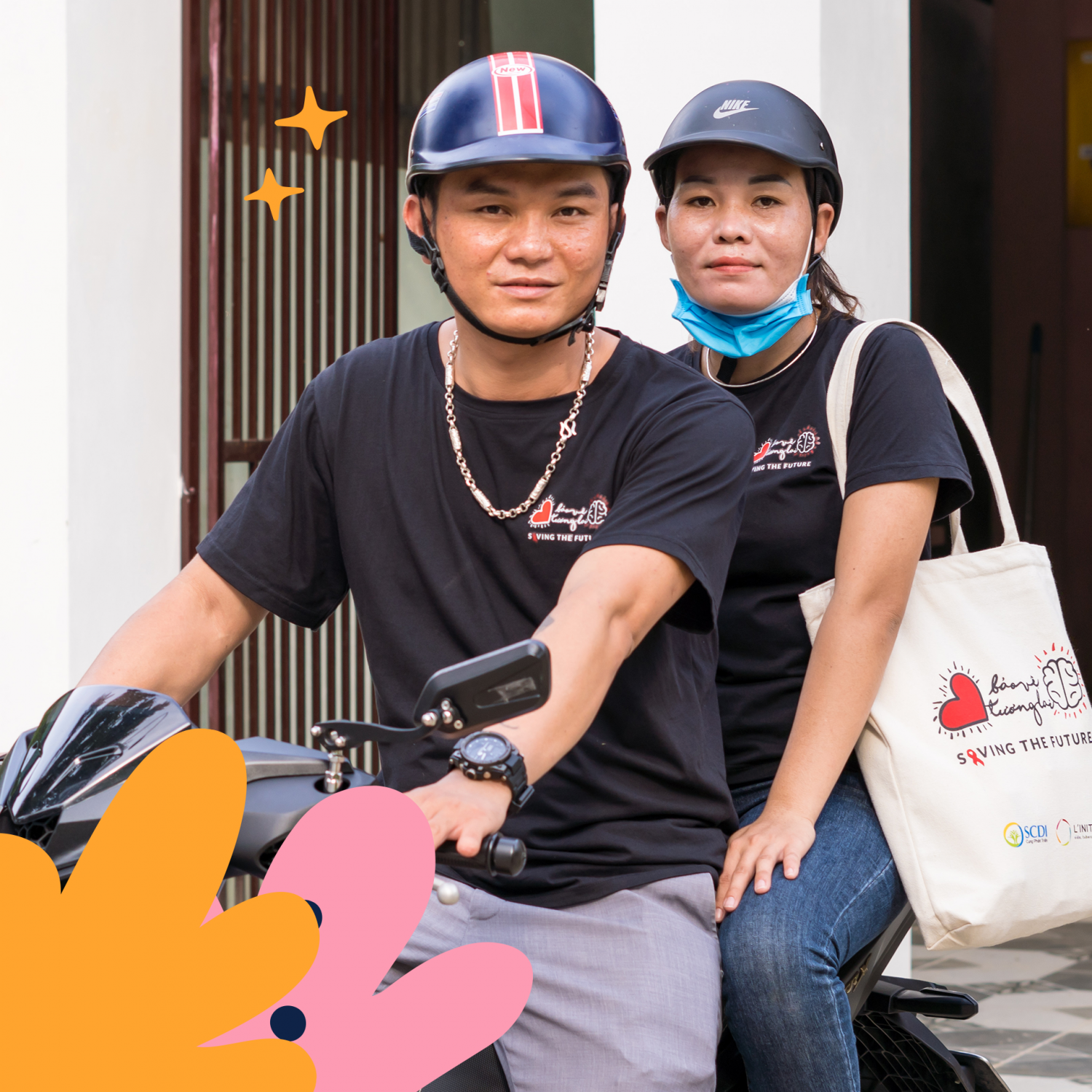
Lo Van Nhat, a member of the Sao Va group, shares that there is a friend who cannot afford to go for daily methadone treatment due to extreme poverty, lack of transportation, and the home being far from the medical center.
Besides persuading the friend and their family, Nhat needs to visit their home to accompany them to the methadone clinic every day. In some cases, to complete the transfer procedures for admission to the Methadone treatment program, one needs to have an ID card and health insurance card, but the 'client' had taken them away to exchange for money to spend on drugs. Nhat went to a pawnshop to take pictures as evidence but was unsuccessful. Finally, with the support of the SCDI coordinator in Nghệ An, they were able to facilitate the transfer and get them into the treatment program.
.png)
In Quang Ninh, Ninh Binh, Thai Binh, Hai Phong, areas with extensive territories and complex drug use situations, the groups must allocate specific tasks to successfully achieve the project's goals. Team members work on propagating and mobilizing individuals at risk of drug use and HIV infection to adopt preventive measures and reintegrate into the community. Despite the challenging nature of the work, everyone strives to overcome obstacles, assisting those with similar circumstances to return to regular life. These persistent efforts and enduring commitment are aimed at bringing about even the smallest positive changes.
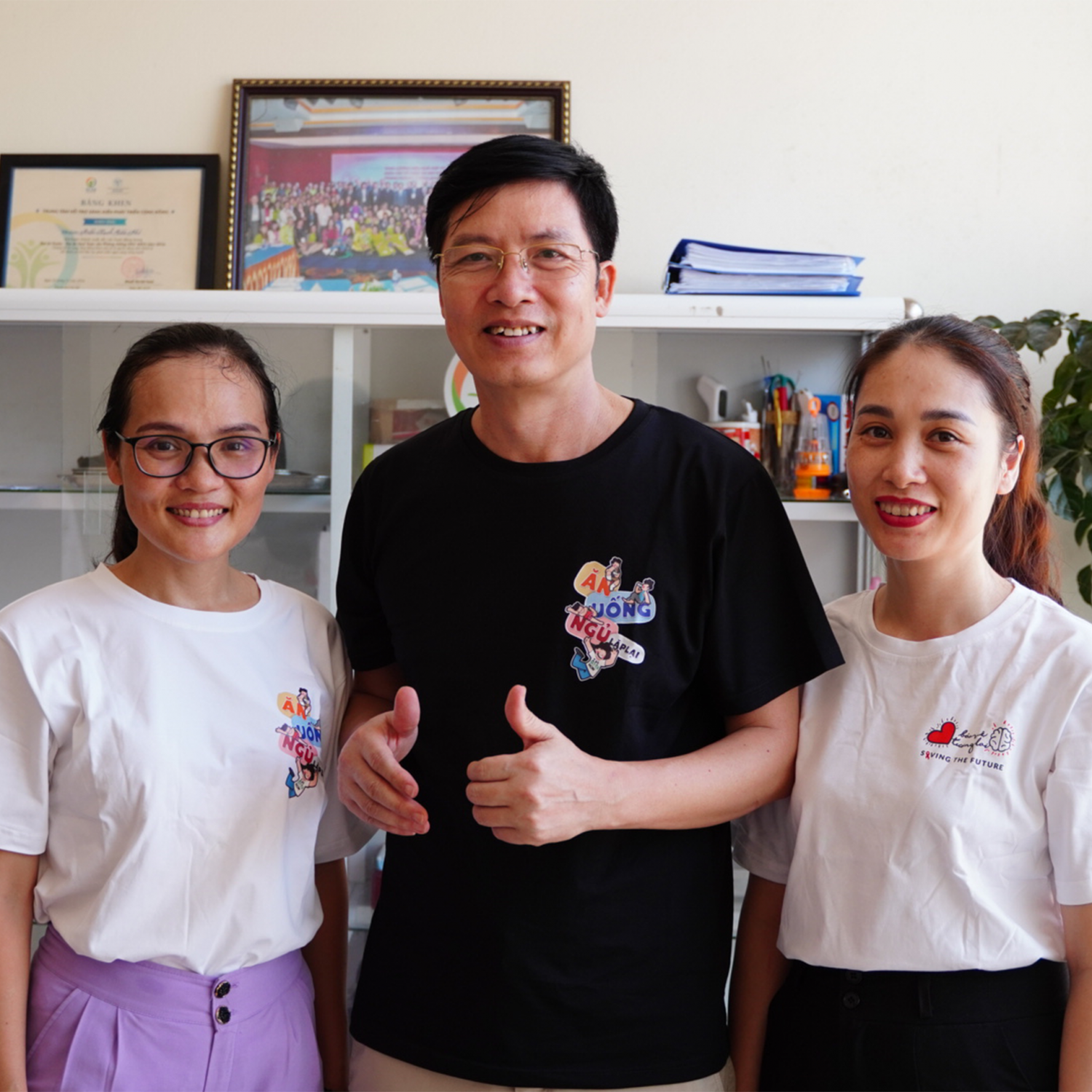
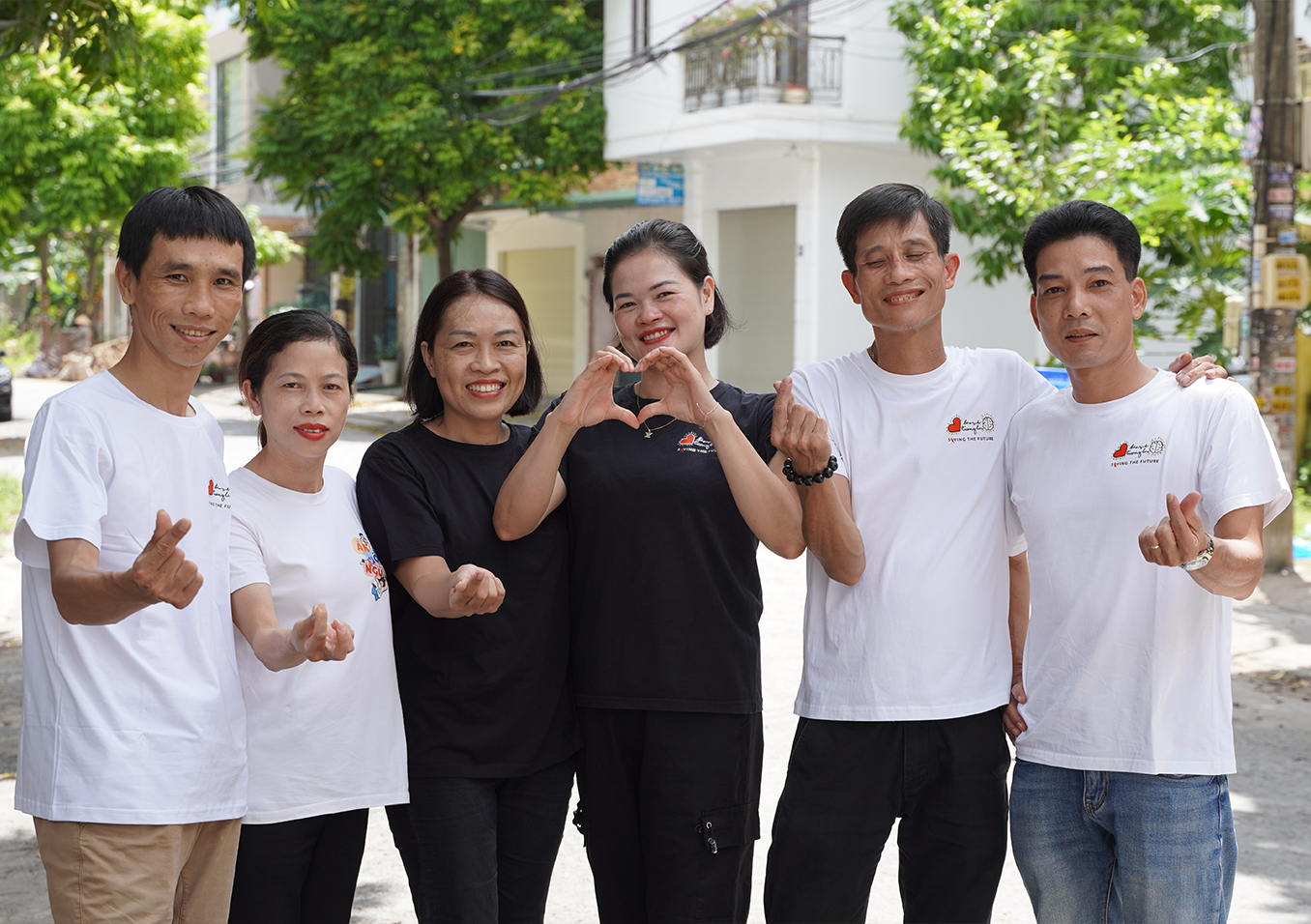

The primary motivation is the change in the clients themselves.
"At our office, we have a scale. When we meet again after half a month, they have gained some weight or a few kilograms. We applaud, give gifts, and praise them. When we see them gaining weight, it indicates that our interventions in reducing substance use harm have been effective."
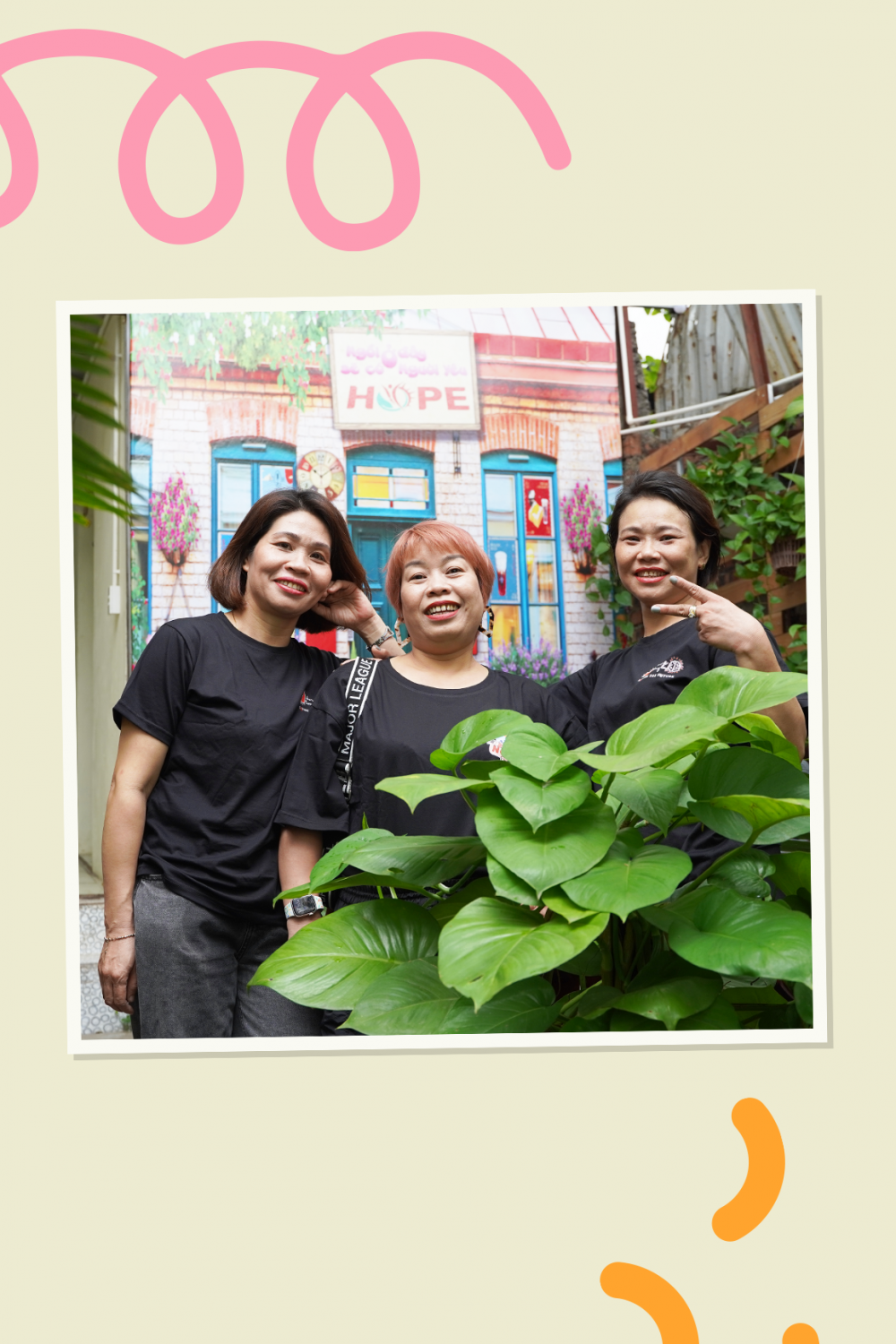
They no longer stay up all night using drugs, and they employ the skills we taught them. It's something I find very rewarding.
"After receiving project training on knowledge and learning about motivational counseling, we inspire clients to become stronger and more confident. Not using drugs doesn't mean their lives will go downhill; they can still protect themselves and their families and value their lives."
"There are moments of joy and sorrow, but there is still regret for the things we haven't been able to accomplish. The number of individuals reached by the project and the group is still quite small. Having more comprehensive programs and interventions can touch and effectively support those who are still hidden."
One of the successes of the Protecting the Future project is the dedicated community outreach workers who are responsible, diligent, persistent, enthusiastic, and proactive. They serve as inspirations not only for the young people in the project but also for the community in changing perspectives, reducing discrimination, and supporting without judgment to protect the future of these young individuals on a long journey ahead.
"There are moments of joy and sorrow, but there is still regret for the things we haven't been able to accomplish. The number of individuals reached by the project and the group is still quite small. Having more comprehensive programs and interventions can touch and effectively support those who are still hidden."
One of the successes of the Protecting the Future project is the dedicated community outreach workers who are responsible, diligent, persistent, enthusiastic, and proactive. They serve as inspirations not only for the young people in the project but also for the community in changing perspectives, reducing discrimination, and supporting without judgment to protect the future of these young individuals on a long journey ahead.
From the beginning, when I first arrived, everyone felt somewhat unfamiliar. I was shy and couldn't talk to people. But then I met the brothers and sisters in the group, and they counseled me very warmly. I felt that I should be more open with everyone.
"I got to know about Saving the Future from the Hope group. The sisters were willing to share their stories so that I could share mine. I felt heard, something I didn't get from my own family.”
“They have helped me a lot in life. When I was sick, for medication and accommodation, without the brothers in the group, I might not have made it through.”
"When I was about to give birth, I didn't have a penny on me; it was the brothers who came and took me to the hospital. I remember that day forever; I will never forget their kindness.”
"At the group, I feel a warm atmosphere, with people who share and care about me. It's like having a second family. I feel very happy and content.”
"I feel the desire to change myself, to love myself more. Because I still have a long journey ahead to explore...”
“They have helped me a lot in life. When I was sick, for medication and accommodation, without the brothers in the group, I might not have made it through.”
"When I was about to give birth, I didn't have a penny on me; it was the brothers who came and took me to the hospital. I remember that day forever; I will never forget their kindness.”
"At the group, I feel a warm atmosphere, with people who share and care about me. It's like having a second family. I feel very happy and content.”
"I feel the desire to change myself, to love myself more. Because I still have a long journey ahead to explore...”
